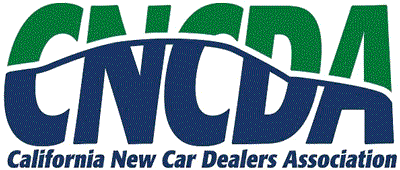This month, CNCDA hosted its annual Dealer Day event – back in person – in Sacramento for the first time in over two years. I would like to give a huge “thank you” to everyone that attended and participated in the day’s events – it truly makes a difference and has set the stage for our efforts this year. We’d also like to thank our sponsors, vendors, and partners who helped make this event possible. For those who were able to attend, this year’s event more than made up for lost time.
As we continue through the second year of a two-year legislative cycle, lawmakers are running on all cylinders to ensure their legislative priorities are successful. After two years of conversation largely centered around COVID-19, this year promises to be a whirlwind of policy conversations centering primarily around employment laws, homelessness, and crime – just to name a few. CNCDA has taken the opportunity this year to push for one of our long-sought objectives, modernizing the Document Processing Charge (DPC).
To that end, CNCDA has proposed a sponsored bill, SB 1249 by Senator Bob Archuleta (D-Pico Rivera), to modernize the DPC to finally secure the compensation dealers deserve for the work they do on behalf of customers every single day. California’s new car dealers provide a wide range of document processing services that benefit customers, saving significant time, money, and hassle while ensuring consumers benefit from the strongest consumer protections anywhere in the nation.
Providing these services for consumers requires substantial staff time, training, and technology at each dealership. However, current law only allows California dealers to recover a statutory maximum of $85 of these substantial costs through the DPC, which is well below their actual costs in performing the required services.
California’s DPC is the lowest in the nation – roughly ¼ of the national average – despite the fact that California’s car dealerships are subject to the most stringent document processing and compliance requirements in the country.
SB 1249 would modernize California’s DPC to more accurately reflect the costs of these important services by gradually increasing the DPC over five years – beginning in 2024 and then adjusting for inflation every year starting in 2030. It would also establish a new fee upon dealers to be deposited in the state Motor Vehicle Account to fund important DMV and CHP operations. This ensures that new car dealers and their employees can continue offering valuable services and protections for consumers.
But, as we fight to pass our own legislation, we also face a number of bills targeting dealers directly.
AB 2311: Severe Limitations on Gap Protection
As a stand-alone protection, traditional auto insurance does not make a consumer whole financially if their car is wrecked or stolen and they owe more on the auto loan than the vehicle is worth. Insurance companies will pay the consumer for the value of the vehicle, not including any amount they may be upside down on their vehicle loans. That is why, for many consumers, GAP protection provides a relatively low-cost method to secure peace of mind and protect against the possibility of having to make payments on a vehicle they no longer own for months or years. Especially with both new and used vehicle prices reaching record highs in the past few years and the reality that many Americans cannot afford to put multiple thousands of dollars down on a vehicle purchase, GAP protection can provide a valuable safeguard.
Despite this, Attorney General Bonta is sponsoring AB 2311 by Assembly Member Brian Mainschein (D-San Diego), which would place significant limits on GAP protection dealers can offer their customers. AB 2311 would strictly limit the amount charged for GAP to 2% of the amount financed under a conditional sales contract and prevent dealers from offering a customer the option to purchase GAP if the conditional sales contract’s loan to value ratio or amount financed at the contracting date exceeds certain complicated formulas. The bill would also void the GAP protection and provide the customer a refund of GAP charges, plus the finance charges attributable to the GAP protection if a dealership employee makes an error. The buyer may also be able to recover three times the amount of any GAP charges as a penalty. And unsurprisingly, it would also require over-the-top disclosure warnings, even though dealers already provide customer notices and disclosures regarding GAP protection purchases.
These overly onerous restrictions on GAP protection would result in an unstable GAP market and cause many dealers to decide the risk of offering GAP to customers who may need it the most is just not worth it. Given that GAP customers primarily include those with lower incomes, smaller reserves for emergencies, and longer and larger loans (that could indicate smaller down payments and higher loan-to-value), such conditions entail higher risks and make GAP protection a more attractive option to provide peace of mind.
California’s new car dealers understand the true value of these products to customers. They work with consumers every day to recommend and provide purchases and protections that make sense for each individual. As the direct connection with customers and as the ones who hear the horror stories of consumers paying for vehicles long after a total loss occurs, dealers are in the best position to inform their local legislators about the value customers have seen and the important protections GAP protection provides.
SB 1311: Mandates Annual Free 30-Day+ Right of Vehicle Return for Certain Military Service Members
Another bill specifically targeting dealers was introduced disguised as an innocuous veterans’ protection.
California is home to almost 163,000 military service members, many of whom have or intend to purchase vehicles. All consumers, including service members, are covered by some of the most robust protections in the country when they purchase a vehicle from a new car dealer in California.
Despite this long list of existing consumer protections, SB 1311 – authored by Senator Susan Eggman (D-Stockton) and Senate Pro Tem Toni Atkins (D-San Diego) – would mandate car dealers to provide an annual, cost-free right for military service members in the grade of E-5 or below who purchase or lease a motor vehicle in the state to cancel the purchase or lease up to 30 days from the date on which the servicemember took possession of the vehicle, or the date on which the servicemember obtained title to the vehicle, whichever is later – essentially providing a free, brand-new rental car for 30 days at the expense of the selling or leasing dealer. A service member who chooses to cancel a vehicle purchase or lease would be entitled to a return of any trade-in and a full refund of all amounts paid within 24 hours of returning the vehicle. This bill does not distinguish between new and used vehicles, and only provides that the vehicle must be returned to the dealer in “substantially the condition in which the service member received it.”
California and federal law impose many requirements on dealers related to the sale of motor vehicles. These laws include the California Car Buyer’s Bill of Rights, which was signed into law in 2006. Part of this comprehensive consumer protection package is the used car contract cancellation option agreement. Consumers who purchase a used car for less than $40,000 must be offered a contract cancellation option agreement, with a minimum time frame of two days.
The vehicle purchase process is more transparent than ever before. Consumers have access to a virtually limitless amount of information related to their vehicle purchase, both online and via customer disclosures at the dealership at the point of sale. California consumers are protected by the most stringent laws in the country, and some dealers already provide a free, no-questions-asked right of return for used vehicles. Providing certain military service members a free, annual right of vehicle return over 30 or more days, when a used vehicle right to return can already be purchased at a price that has not increased for over 15 years (despite vehicle prices sharply rising over that same time frame), is unnecessary and unfairly interferes in dealer business practices.
There’s a long road to the end of this legislative session on August 31st, and battles to be fought at every step along the way. Once again, we cannot thank our Dealer Day attendees enough. Your support was critical and will be a huge part of any success we see this year.








